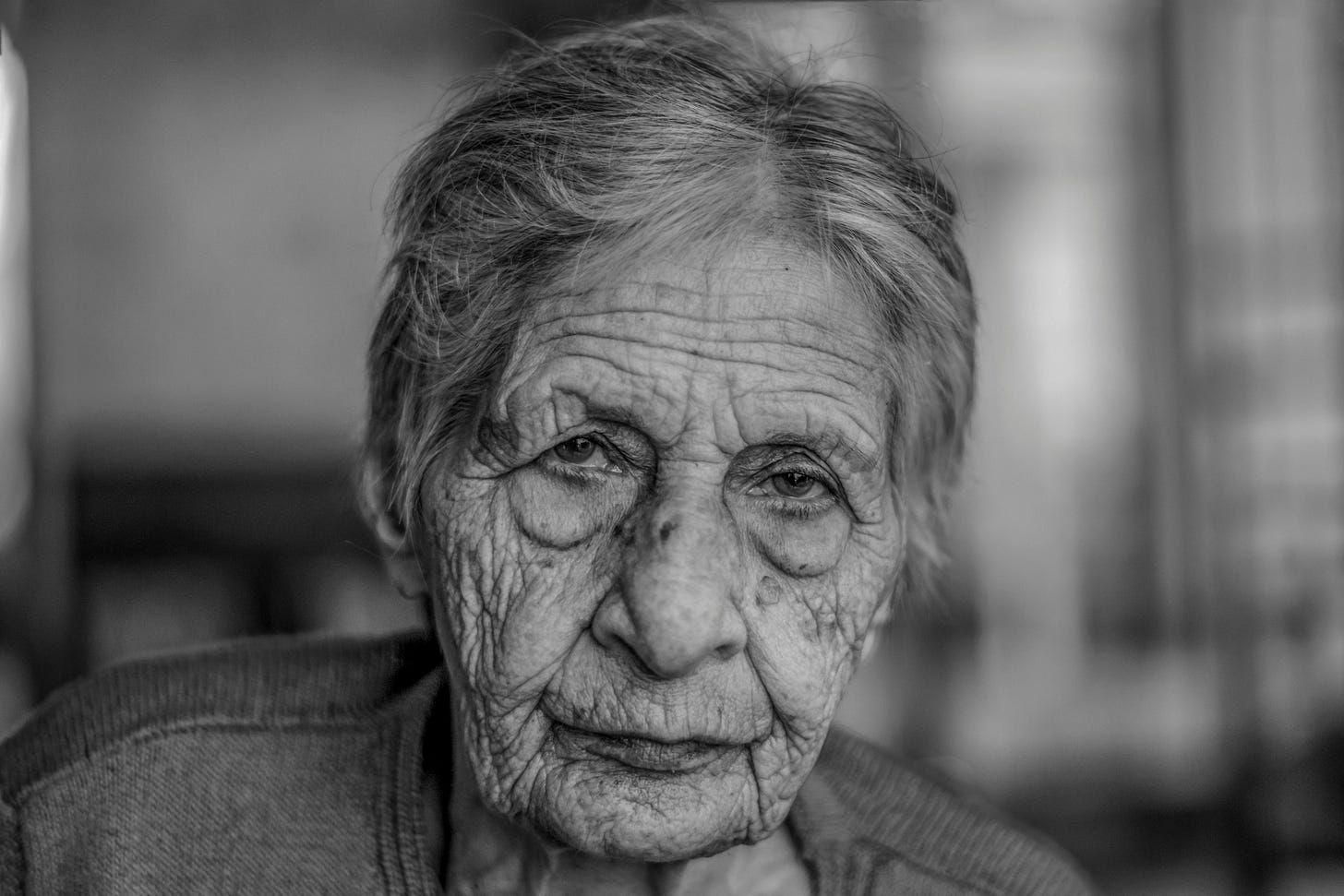Cara had never been the best daughter. She’d made her peace with that. She’d made peace with a lot of stuff.
“So why not your mom too?” Keeley asked.
“Maybe I’m not a great daughter because she wasn’t a great mom.”
But then it was a decade since they’d seen each other. Her mom would be in her seventies now, almost a stranger.
“You only get one mother,” Keeley kept on at her.
#
The house was the house she remembered. A little more weather-worn. A little more overgrown. But still a place she’d called home for a long time. Not recently, but for a long time.
It took her long time to knock on the door.
She’d known exactly what she was going to say when the door opened, exactly how she’d say it. But then it opened and she was tongue-tied. Because could this withered, stooped thing with wild hair and chalky eyes really be her mother?
“Mom?” she said in a way that she hadn’t meant to say it at all. But it had only been ten years. Your seventies weren’t that old.
“Cara?” the woman who might be her mother said.
“Mom?”
And then the woman wrapped her arms around Cara. And they felt so unfamiliar. So thin when they had been so broad. So weak when they had been so strong.
She was welcomed inside. And everything in the house felt the same: the photos, the stairs, the stale cigarette smell. The woman ushered her into a familiar kitchen, and pulled out familiar plates. Except… her mom had never been this solicitous, this eager to know how she was feeling. Her mother had been a bitter old battleaxe, a diner waitress who’d seen it all and been bored by it the first time. Now, she fussed and fawned.
“It’s been so long,” the woman said, and a long and bony finger stroked Cara’s arm. But hadn’t her mother’s fingers been stout and strong?
“Well, you said what you said,” Cara told her. “And I felt I wasn’t welcome anymore.”
The woman blinked at her. “About Keeley,” Cara said with a sort of astonishment that she needed to clarify. “About my wife.”
No recognition entered the woman’s eyes. She just stared at Cara blankly. “Well, you’re home now,” she said finally.
Was she?
#
The woman helped Cara bring her bags up to her old bedroom. All the old posters were there. All the old knick-knacks on shelves.
“Let me help you get settled,” the woman said, and fussed around Cara in a way she’d never done before.
“Do you remember me winning this?” Cara held up an old hockey trophy.
The woman blinked at her.
#
Perhaps it’s early onset dementia? Keeley texted her that night. It’s probably good you’re there. I’m so glad you’re doing this, babe.
I don’t recognize her, Cara wrote, but didn’t send. Did she recognize her? Did she see a ghost of her mother in the woman’s face? Who else could it be?
She deleted the text.
#
The next morning, the woman was making Cara a full breakfast. Bacon sizzled. Coffee bubbled. Cara couldn’t remember a time she’d seen her mother use anything other than the microwave to heat things up.
“You look skinny,” the woman said not looking up from the tomato she was slicing. It was like she’d learned all the things a mother should say from a book.
Cara went over to the woman, put a hand on her shoulder. “I don’t eat bacon,” she said. “I’ve been vegetarian since I was a teen-”
She broke off.
She thought she was going to be sick.
The woman had sliced well beyond the tomato, had progressed up through her own forefinger. Flesh, and bone, and nail were strewn among mess of vegetable pulp on the chopping board.
The woman smiled gently at her.
#
Cara still felt nauseous sitting in the Emergency Room waiting to hear back from the doctors. On the breakneck drive here, the woman had sat uncomplaining beside her, holding the ruined pieces of her own finger in a small Tupperware container.
Could it be some neurodegenerative thing? Something eating memory and pain reflexes equally?
Or…
Or…
Or, what if it wasn’t her mother?
I’m kind of freaking out here, she texted Keeley, and waited for a response that didn’t come.
Raised voices attracted her attention. She looked down a corridor, saw the doctor who had swept her mother into a curtained partition, showing an iPad to another doctor who was shaking her head. Both of them wore looks of sharp alarm.
“Hey!” Cara called over, already feeling ridiculous because these doctors saw so many patients. There was no real chance this was actually about her mother. But when the doctors looked up, and saw her, they both exchanged a look and walked quickly away.
Cara got up, walked to the bed where she’d left her mother. When she looked behind the curtain, the bed was empty.
#
It was nearly midnight when she got back to her mother’s house. The police had assured her they would keep up the search. The detective with kind eyes had told her she needed to get some sleep.
She checked her phone. Keeley still hadn’t responded.
She turned out the lights and lay in the dark. She thought about when she was a child—before all the rebellion, and disobedience, and disharmony—when she’d been terrified of the thunder outside, and her mother had stayed in her room all night, just sitting beside her, lulling her to sleep with the sound of her breathing.
In the pitch back, sleep came on slow, and on its edge, memory mixed with dream, and Cara thought that once more she could hear the sound of someone breathing, slow and steady in the dark beside her.
And then, just before consciousness finally fled, it sounded almost as if a thin voice whispered in her ear, “Well, you’re home now.”





